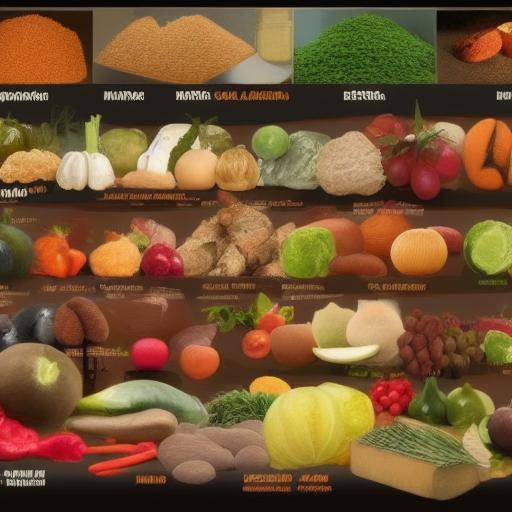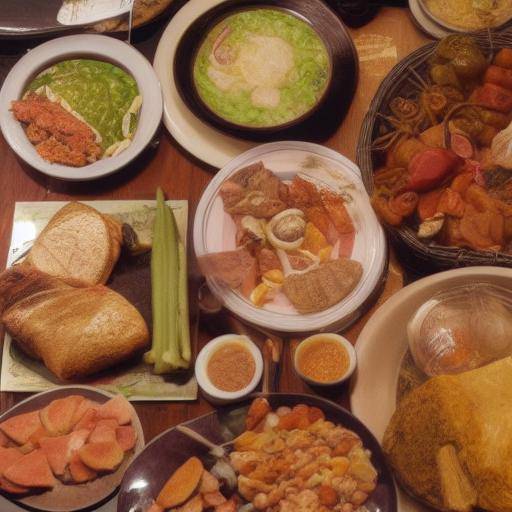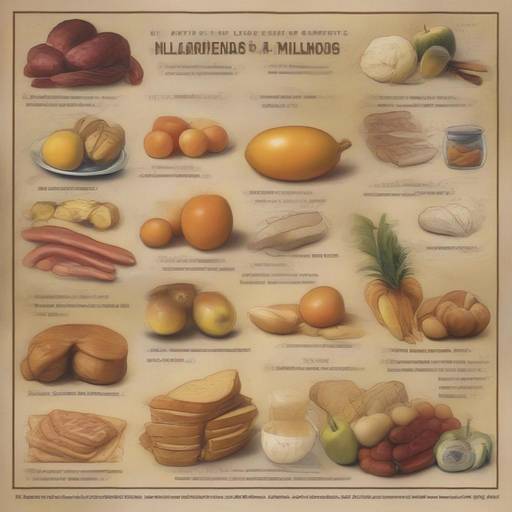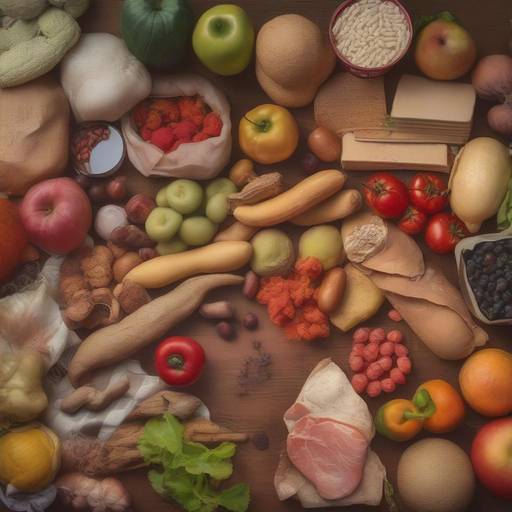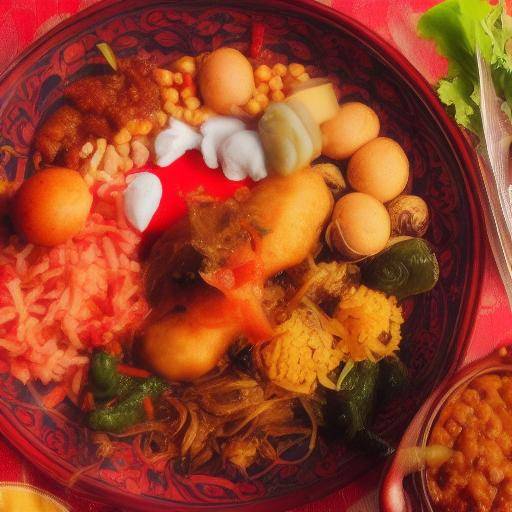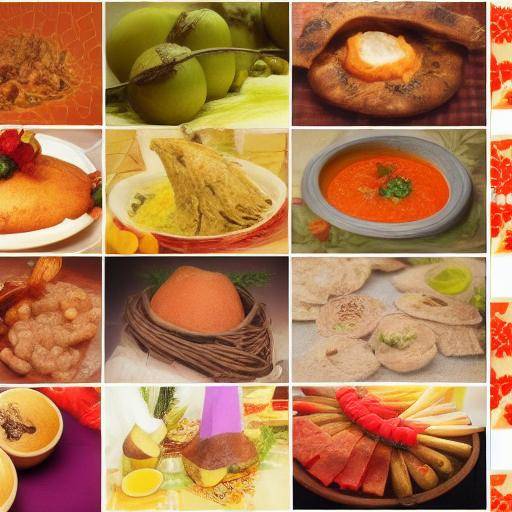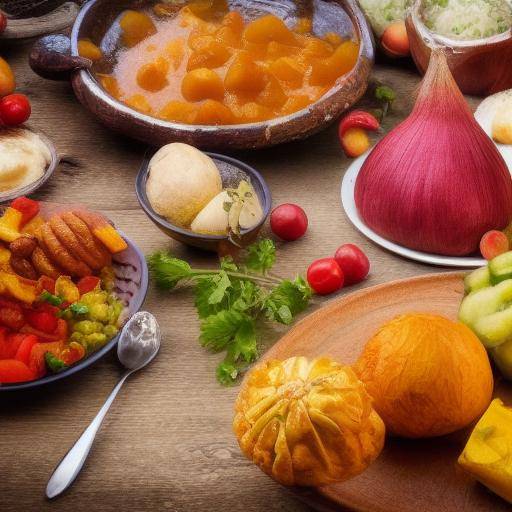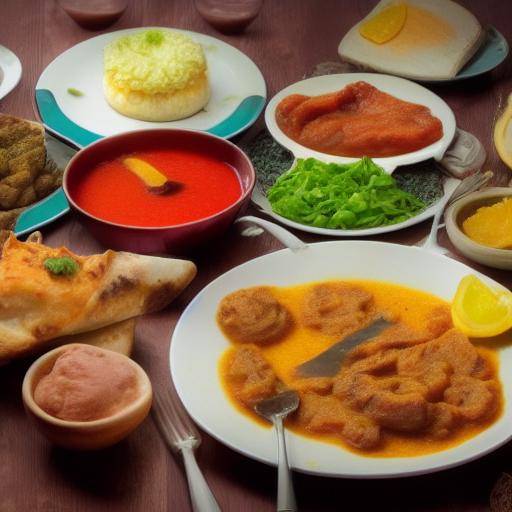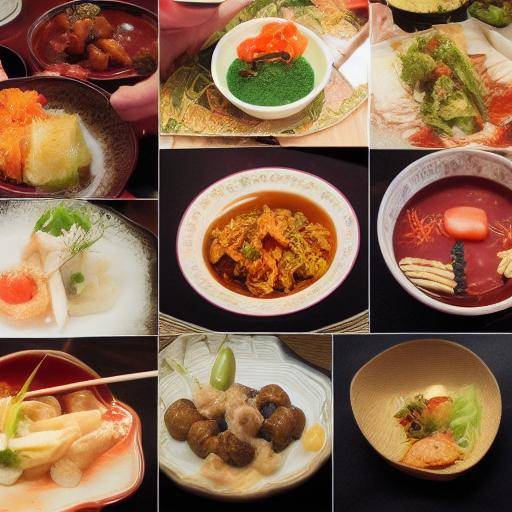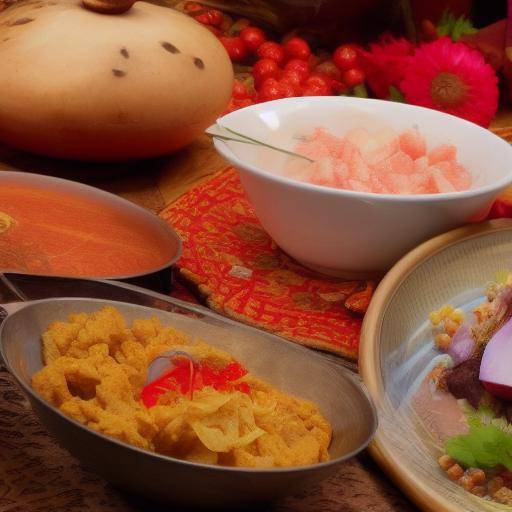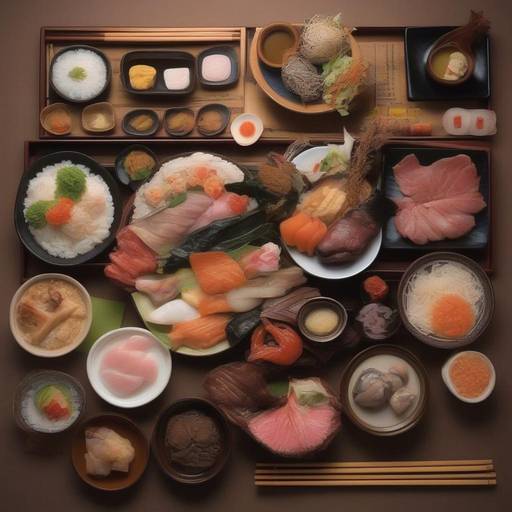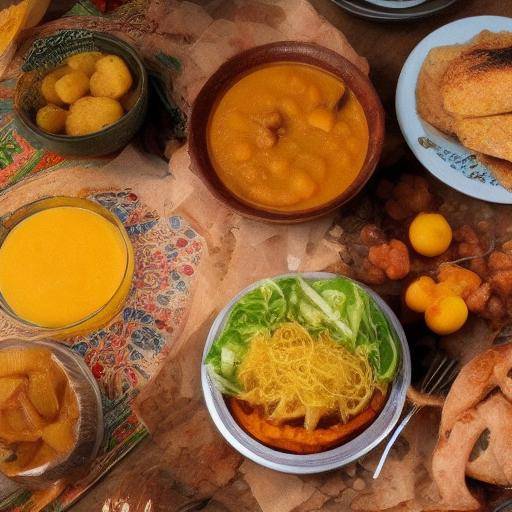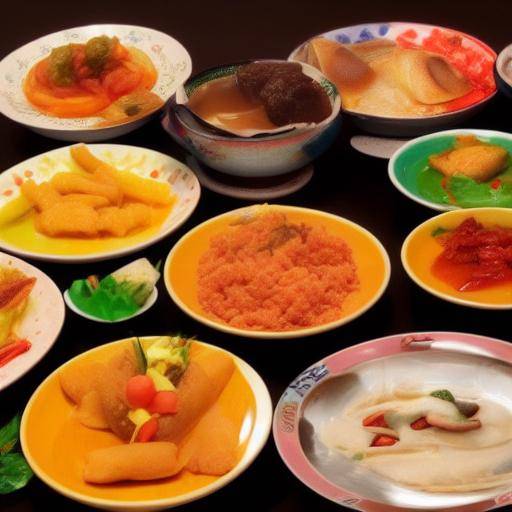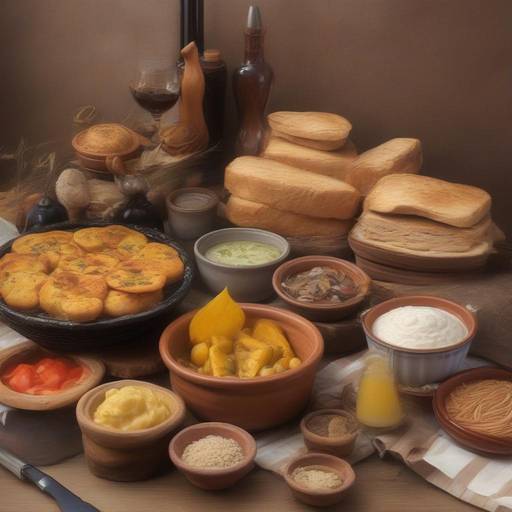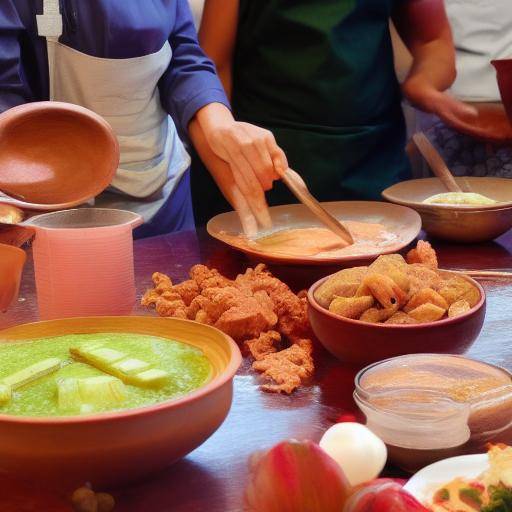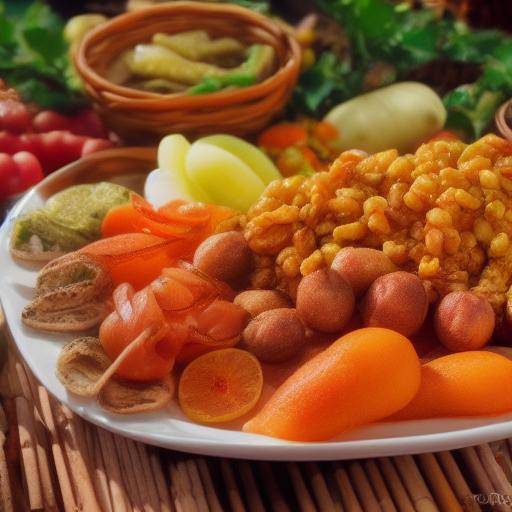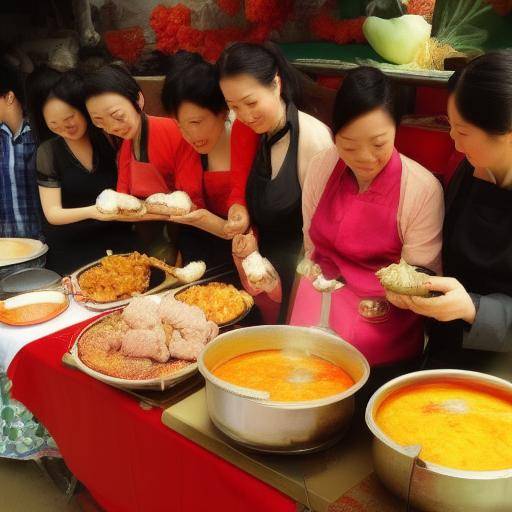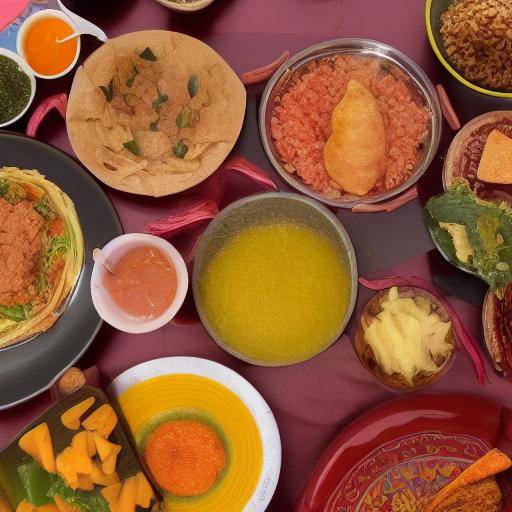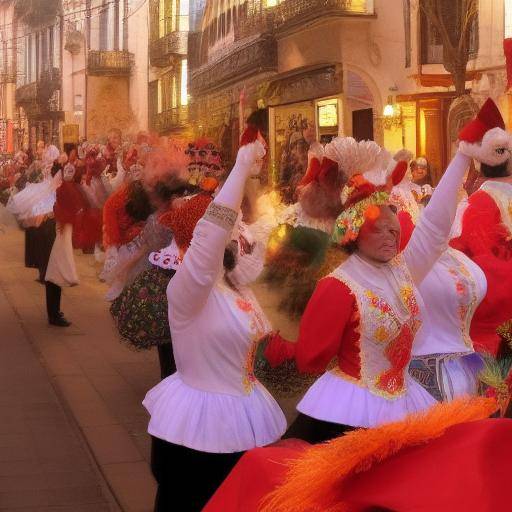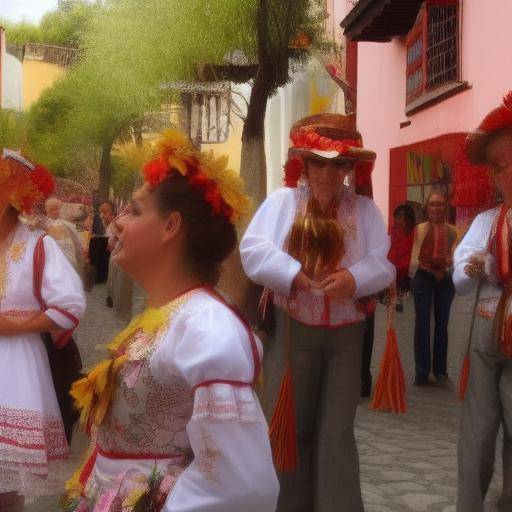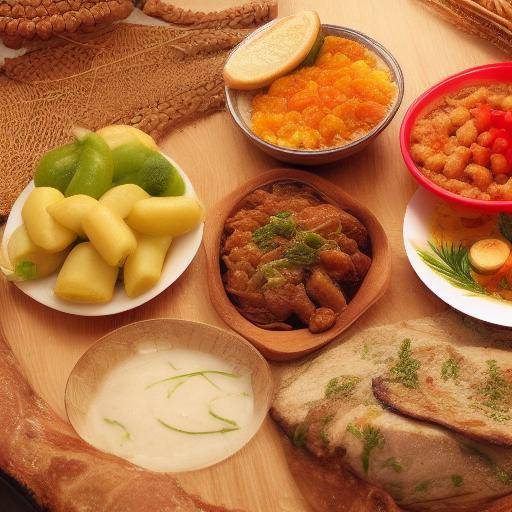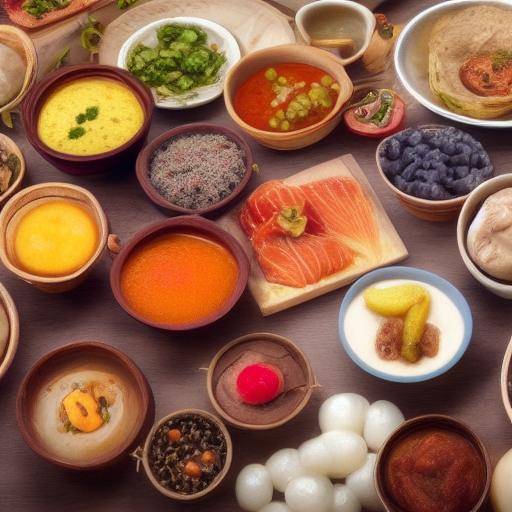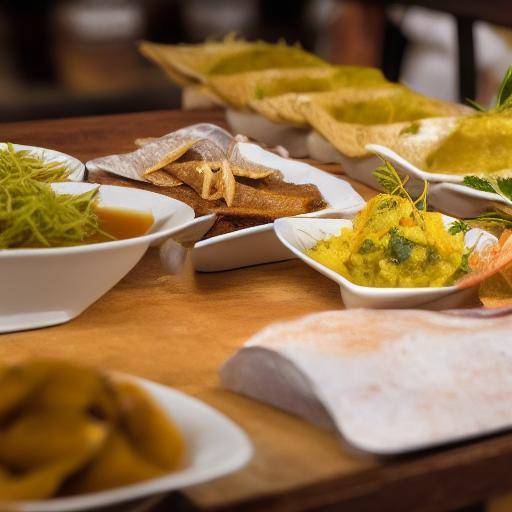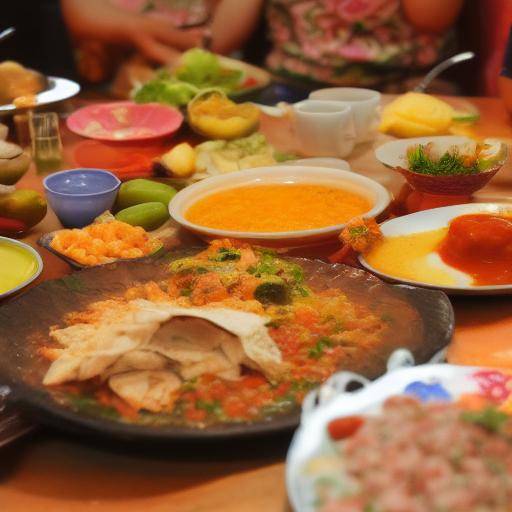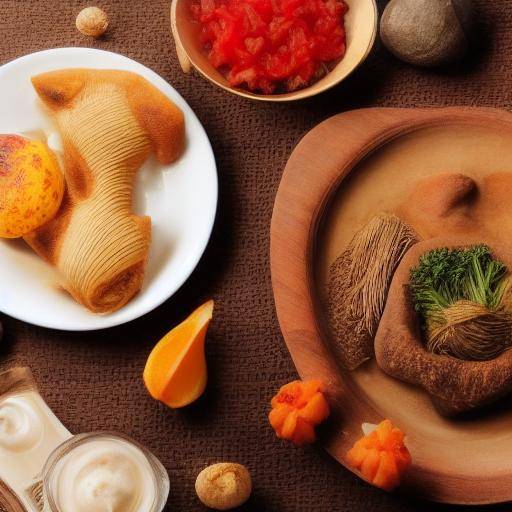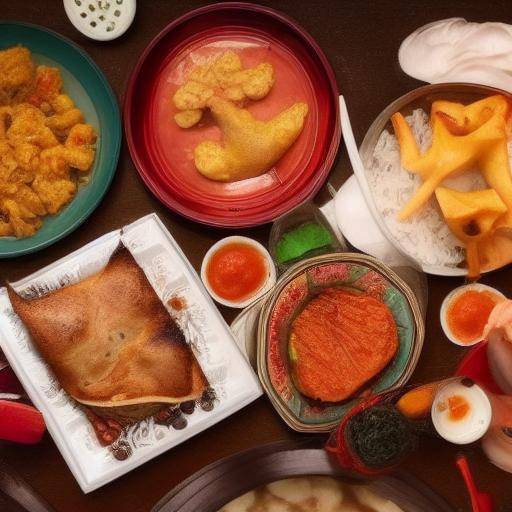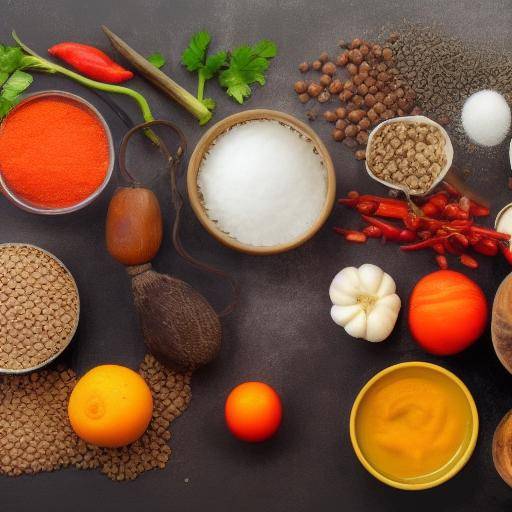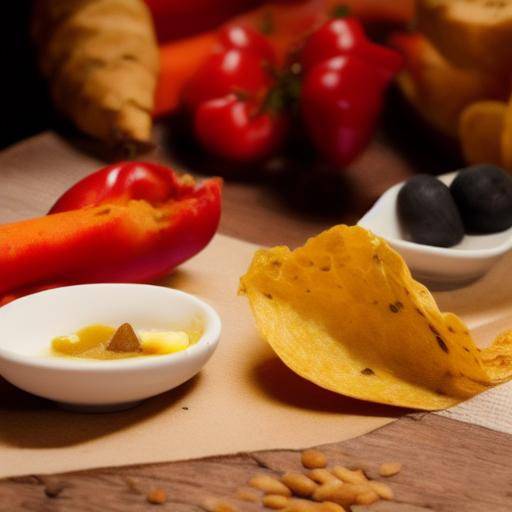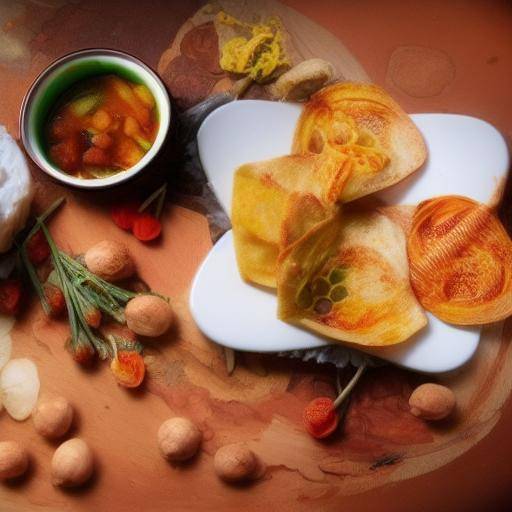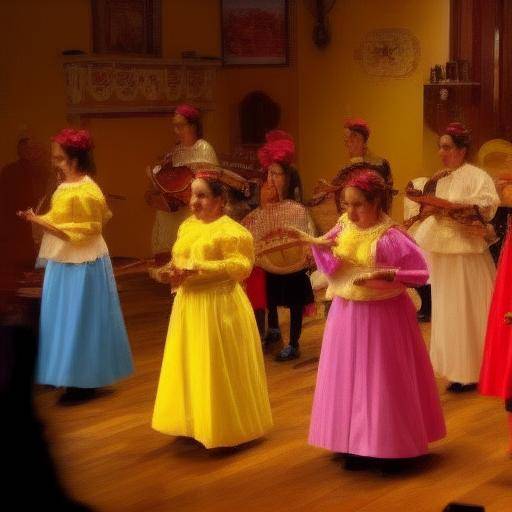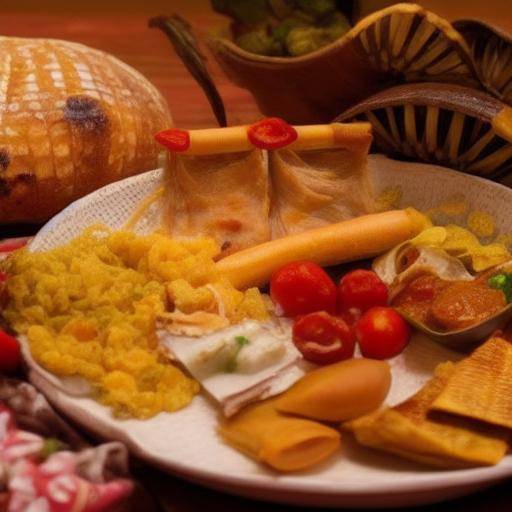
Introduction
Imagine walking through the narrow cobbled streets of Spain, wrapped in the tempting aroma of food that is cooked on slow fire in traditional cuisines. The Spanish culture is intrinsically linked to its rich cuisine, which has evolved over the centuries, merging Arab, Jewish, Roman and Celtic influences. In this article, we will explore the gastronomic traditions rooted in Spanish culture, from its history and evolution to its impact on everyday life and current society. We will also analyze how these traditions have transcended borders to become a fundamental part of Spanish identity and a global tourist attraction. Prepare for a culinary journey that will delight your senses and enrich your understanding of Spanish culture.
Historical and Context
The gastronomic history of Spain is as varied as its landscape. From the olives of Andalusia to the seafood of Galicia, each region provides distinctive ingredients to the national cuisine. The influence of ancient civilizations such as the Romans and the Arabs left an indelible mark on the methods of cultivation, cooking techniques and the ingredients used. The introduction of food such as rice, almonds and sugar, as well as irrigation techniques and advanced agriculture, transformed local cuisine.
The discovery of America in 1492 marked the beginning of a new culinary era for Spain, with the arrival of ingredients such as tomato, pepper, corn and potatoes. These new products revolutionized the way food was cooked and tasted in the Iberian Peninsula. In addition, cultural exchange with Spanish colonies in Latin America further enriched the gastronomic heritage of Spain, creating lasting links between the cuisines of both continents.
Analysis in Deep
Spanish gastronomic traditions have not only resisted the test of time, but have also adapted to social and economic changes. Today, Spanish cuisine is recognized worldwide for its diversity, intense flavors and sophisticated culinary techniques. The Mediterranean diet, with its emphasis on olive oil, fruits, vegetables, fish and red wine, has been internationally renowned for its health benefits.
The boom in gastronomic tourism has led to a renewed interest in the regional culinary traditions of Spain. Travelers look for authentic experiences that allow them to explore the wealth and uniqueness of Spanish food, from the tapas of Andalusia to the pintxos of the Basque Country. This trend has led to the preservation of traditional recipes, the promotion of local products and the rebirth of old culinary practices.
Full review
Spanish gastronomic traditions have proved to be an invaluable cultural asset, not only in terms of national identity, but also as an economic engine and tool for tourist promotion. Through gastronomic festivals, wine routes, local markets and Michelin star restaurants, Spain has consolidated its position as a top-level culinary destination.
Food in Spain is not only enjoyed at the table, but it is also a means to reunite families and friends, celebrate holidays and honor traditions. The values of generosity, hospitality and gratitude are intrinsically linked to the experience of sharing a meal in Spanish culture. These culinary rituals have established deep emotional connections between people and have strengthened community ties over the centuries.
Comparative analysis
When the relationship between gastronomic traditions, Spanish culture and food is explored, an intrinsic connection that transcends the mere food is revealed. Food in Spain is not simply a way of nourishing the body, but also a language that communicates the history, beliefs and values of society. The meticulousness in the selection of ingredients, the preparation of dishes and the presentation of the food reflects the respect and devotion that the Spanish have for their culinary heritage.
Practical Tips and Accionable Suggestions
If you are looking to immerse yourself in the gastronomic traditions of Spanish culture, we recommend you to explore local markets, participate in wine tastings, learn to cook typical dishes and, of course, enjoy a meal in a traditional restaurant. Do not just try the most famous dishes; venture to discover the hidden delicacies that each region has to offer. Remember that food is a complete sensory experience that goes beyond the palate, so take your time to savor every bite and appreciate the story that lies behind each recipe.
Industry Perspectives and Expert Reviews
Gastronomy experts agree that Spanish culinary traditions have a timeless appeal that goes beyond modern trends. In an increasingly globalized world, the authenticity and uniqueness of Spanish food are perceived as a cultural treasure that deserves to be preserved and valued. Chefs and restaurateurs have taken on the challenge of rescuing traditional recipes, reinterpreting classic dishes and promoting sustainability in food production, in order to protect the gastronomic heritage of Spain for future generations.
Case Studies and Real Life Applications
A clear example of the economic and cultural impact of Spanish gastronomic traditions is culinary tourism, which attracts millions of visitors every year. From the enological trips in La Rioja to the olive oil routes in Andalusia, the gastronomic experiences have redefined the way in which tourists explore and understand the diversity of Spanish culture. These itineraries not only promote the local economy, but also encourage intercultural exchange and appreciation of food diversity.
Future Trends and Predictions
As global awareness of the importance of sustainable gastronomy and the preservation of culinary traditions continues to grow, gastronomic traditions in Spanish culture are expected to be even more valued in the future. The adoption of agroecological practices, the promotion of the denomination of origin and the diversification of the gastronomic supply are trends that are expected to dominate the culinary landscape. In addition, the influence of Spanish cuisine on the global scene is expected to continue to increase, attracting the interest of lovers of good food and curious gastronomics from around the world.
Conclusion
In short, the gastronomic traditions of Spanish culture are a vivid reflection of the history, geography, diversity and creativity of Spain. Through its flavors, aromas and culinary rituals, Spanish food invites us to embark on a journey of discovery and delight that transcends the barriers of time and space. Whether you are enjoying tapas in a Seville bar or learning to make paella in Valencia, the Spanish food invites you to immerse yourself in its rich history and celebrate life through each bite. Good profit!
Frequently asked questions
**1. What are the most emblematic traditional dishes of Spanish cuisine?**The Spanish cuisine is known for dishes such as paella, gazpacho, Spanish tortilla, Iberian ham, tapas, octopus to the Galician and the Asturian fabada, among others. These dishes represent the diversity of ingredients and culinary techniques that characterize Spanish cuisine. Each region of Spain has its own culinary specialty, which makes the gastronomic offer incredibly varied and rich.
**2. How does the Mediterranean diet influence the Spanish gastronomic culture?**The Mediterranean diet, with its emphasis on fresh ingredients, olive oil, fish, vegetables and fruits, has had a lasting influence on Spanish cuisine. It has contributed not only to the health and well-being of Spaniards, but also to the promotion of a balanced and harmonious relationship with food.
**3. What are the most outstanding gastronomic festivals in Spain?**Spain hosts numerous culinary festivals throughout the year, such as the Feast of Cocido in Lalín, the National Festival of Chorizo in Salamanca, the Feast of Cheese in Trujillo, the Tapa Fair in Zaragoza, among others. These festivals offer a unique opportunity to experience Spanish culinary diversity and tradition.
**4. How have the Spanish gastronomic traditions evolved in the modern era?**In the modern era, Spanish gastronomic traditions have adapted to social and economic changes, keeping their essence while incorporating culinary innovations. The cutting-edge cuisine and the revaluation of traditional techniques have marked the evolution of Spanish cuisine.
**5. What role does food play in Spanish holidays and celebrations?**Food plays a central role in the Spanish holidays and celebrations, serving as a vehicle to reunite family and friends, share special moments and honor traditions. Each holiday has its own typical dishes and sweets that reflect the identity and cultural significance of the celebration.
**6. How has gastronomic tourism impacted on the promotion of Spanish gastronomic traditions internationally?**Gastronomic tourism has contributed significantly to the promotion of Spanish culinary traditions internationally, attracting travelers in search of an authentic and enriching experience. Wine routes, olive oil tastings and culinary experiences have helped spread the gastronomic legacy of Spain to a global audience.
In conclusion, gastronomic traditions in Spanish culture are a vibrant reflection of Spain's history, diversity and passion for good food and shared life. The Spanish food invites everyone to enjoy authentic culinary experiences and to value the cultural wealth that is found in each dish.



